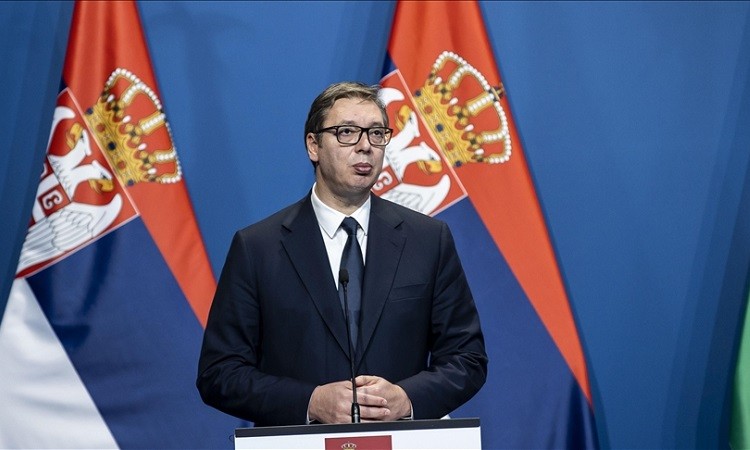
Serbia is set to conduct snap elections next month, as President Aleksandar Vucic dissolved parliament in response to domestic and European Union pressures.
Scheduled for December 17, the parliamentary vote and local elections will take place less than two years after the Serbian Progressive Party's previous electoral victory.
In a televised address, President Vucic emphasized the need for unity in these challenging global times marked by conflicts and crises. He stated, "We must come together to safeguard the essential national and state interests of the Republic of Serbia."
The decision to hold elections comes amid mounting criticism of President Vucic and his party, who have governed Serbia since 2012. The government has faced accusations of promoting a culture of violence while restricting media and electoral freedom, in addition to public outrage over a series of fatal shootings in May that claimed 18 lives.
During previous protests, several pro-European Union parties asserted that their demands had been ignored and called for new elections, characterizing Serbia as being in a severe political and social crisis. They argued for responsible political leadership capable of addressing problems instead of neglecting them.
The European Union's primary prerequisite for Serbia's progress is the normalization of its relations with Kosovo, a self-declared independent state since 2008 that Belgrade still regards as part of its territory. While over 100 countries recognize Kosovo as an independent nation, it has yet to attain United Nations membership.
During her visit to Belgrade, Ursula von der Leyen, the President of the European Commission, stressed that Serbia and Kosovo must make more headway if they aspire to join the European Union.
Some observers speculate that President Vucic's decision to call for elections is a means to postpone addressing this politically sensitive issue. Kosovo is predominantly inhabited by ethnic Albanians, with a northern region home to ethnic Serbians who reject Pristina's government. The ethnic tensions between these groups were a major source of violence and conflict in the late 1990s, leading to the deployment of NATO peacekeeping troops in Kosovo, where recent tensions have arisen, prompting Serbia to send troops to its border in September.
Israel-Hamas war live Updates:Jabalia Strikes Claim 195 Lives with 120 Still Missing